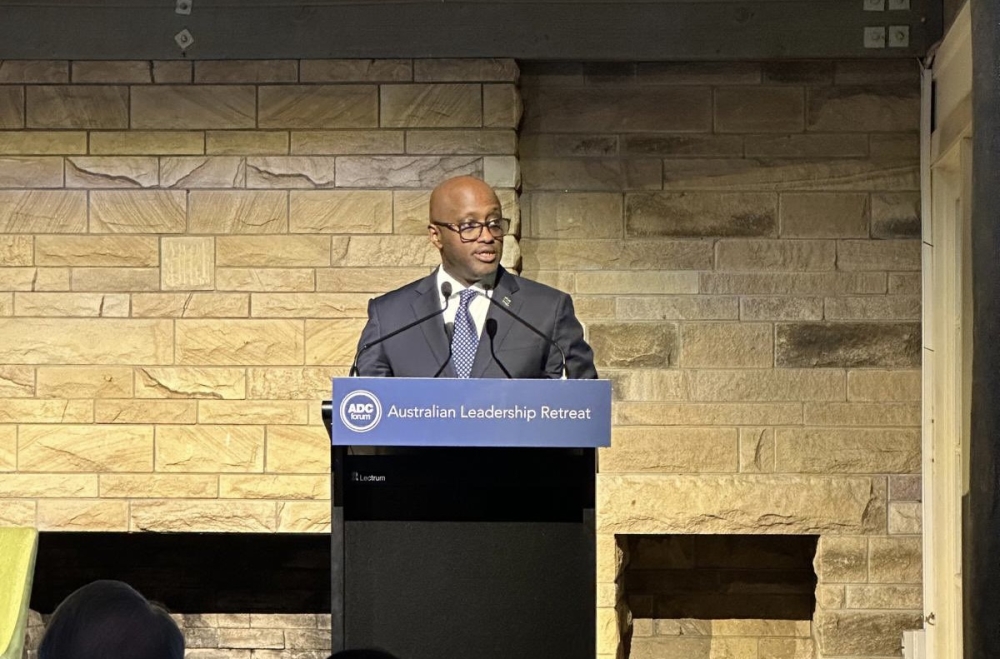Chief Justice, Prof Sam Rugege, has condemned some law practitioners who collaborated with the genocidal regime and denied Rwandans justice at the time when they needed it most.

Chief Justice, Prof Sam Rugege, has condemned some law practitioners who collaborated with the genocidal regime and denied Rwandans justice at the time when they needed it most.
Rugege’s was commenting on a presentation by Senator Jean Damascene Bizimana on the role played by judicial officers in the 1994 Genocide against the Tutsi. This was at a ceremony to honour of over 180 former employees of the Ministry of Justice who perished in the Genocide.
According to Bizimana, many false charges were often brought against Tutsi officials by intelligence officers and some judiciary officials would uphold them without any proof.
"It’s regrettable that members of the judiciary; who strived for everyone’s justice, were denied justice when they needed it most. They were never respected and never considered as members of the judiciary. This was unfortunate,” the Chief Justice said.
Rugege added that in order to restore the image of the judiciary, the government will not compromise on ensuring justice and human rights for all.
"The impact of such regrettable fate that befell the sector gives us more reason to fight against those who negate the Genocide as well as strive to end Genocide ideology and related crimes. We will not compromise on justice and human rights of Rwandans,” he said.
Bizimana pointed out that a number of law practitioners participated in the execution of the Genocide by issuing unlawful unrest warrants for Tutsis.
He cited Theoneste Mujyanama, a Minister of Justice in 1990, who when asked by journalists why 8,043 people had been arrested for alleged collaborating with RPF rebels, answered: "By the mere fact that the arrested belong to the same tribe as the rebels, makes them the first suspects”.
Dr Naasson Munyandamutsa, a psychotherapist and researcher, urged the judiciary to be a instrument of peace and restore broken hearts.
"You have the obligation to name the bad and the good. You have the powers to bring justice; that is the instrument you should use to mend the broken hearts of Rwandans,” he said.
The Minister for Justice, Johnston Busingye, said restoring the Rwandan identity and values will require as much efforts as those used to develop divisionism.
"I cannot imagine, a person entrusted to ensure justice in the society becomes an instrument of injustice. You must understand that this spirit of unprofessionalism was influenced by poor leadership of the time,” Busingye said.




